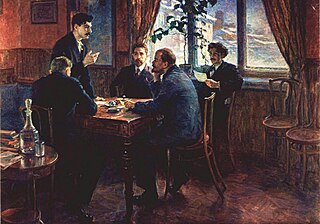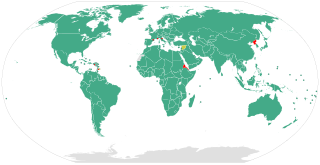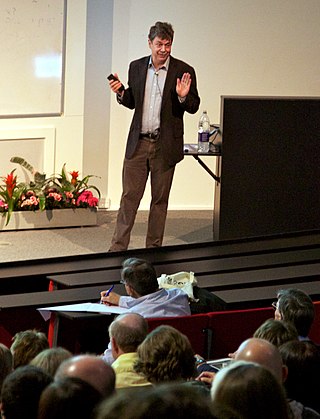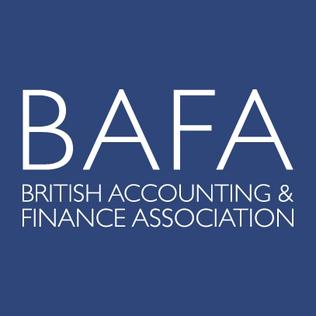Related Research Articles

Science fiction fandom or SF fandom is a community or fandom of people interested in science fiction in contact with one another based upon that interest. SF fandom has a life of its own, but not much in the way of formal organization.

A committee or commission is a body of one or more persons subordinate to a deliberative assembly. A committee is not itself considered to be a form of assembly. Usually, the assembly sends matters into a committee as a way to explore them more fully than would be possible if the assembly itself were considering them. Committees may have different functions and their types of work differ depending on the type of the organization and its needs.

The International Chamber of Commerce is the largest, most representative business organization in the world. Its over 45 million members in over 100 countries have interests spanning every sector of private enterprise.

A conference is a meeting, often lasting a few days, which is organized on a particular subject, or to bring together people who have a common interest. Conferences can be used as a form of group decision-making, although discussion, not always decisions, is the primary purpose of conferences. The term derives from the word confer.

Science fiction conventions are gatherings of fans of the speculative fiction genre, science fiction. Historically, science fiction conventions had focused primarily on literature, but the purview of many extends to such other avenues of expression as films, television, comics, animation, and games. The format can vary but will tend to have a few similar features such as a guest of honour, discussion panels, readings and large special events such as opening/closing ceremonies and some form of party or entertainment. Science fiction conventions started off primarily in the UK and US but have now spread further and several countries have their own individual conventions as well as playing host to rotating international conventions.

The United Nations Convention Against Corruption (UNCAC) is the only legally binding international anti-corruption multilateral treaty. Negotiated by member states of the United Nations (UN) it has been adopted by the UN General Assembly in October 2003 and entered into force in December 2005. The treaty recognises the importance of both preventive and punitive measures, addresses the cross-border nature of corruption with provisions on international cooperation and on the return of the proceeds of corruption. The UN Office on Drugs and Crime (UNODC) in Vienna serves as Secretariat for the UNCAC. UNCAC's goal is to reduce various types of corruption that can occur across country borders, such as trading in influence and abuse of power, as well as corruption in the private sector, such as embezzlement and money laundering. Another goal of the UNCAC is to strengthen international law enforcement and judicial cooperation between countries by providing effective legal mechanisms for international asset recovery.

An academic conference or scientific conference is an event for researchers to present and discuss their scholarly work. Together with academic or scientific journals and preprint archives, conferences provide an important channel for exchange of information between researchers. Further benefits of participating in academic conferences include learning effects in terms of presentation skills and “academic habitus”, receiving feedback from peers for one's own research, the possibility to engage in informal communication with peers about work opportunities and collaborations, and getting an overview of current research in one or more disciplines.

A convention, in the sense of a meeting, is a gathering of individuals who meet at an arranged place and time in order to discuss or engage in some common interest. The most common conventions are based upon industry, profession, and fandom. Trade conventions typically focus on a particular industry or industry segment, and feature keynote speakers, vendor displays, and other information and activities of interest to the event organizers and attendees. Professional conventions focus on issues of concern along with advancements related to the profession. Such conventions are generally organized by societies or communities dedicated to promotion of the topic of interest. Fan conventions usually feature displays, shows, and sales based on pop culture and guest celebrities. Science fiction conventions traditionally partake of the nature of both professional conventions and fan conventions, with the balance varying from one to another. Conventions also exist for various hobbies, such as gaming or model railroads.
Meetings, incentives, conferences and exhibitions tourism is a type of tourism in which large groups, usually planned well in advance, are brought together. Recently there has been an industry trend toward using the term "meetings industry" to avoid confusion from the acronym. Other industry educators are recommending the use of "events industry" to be an umbrella term for the vast scope of the meeting and events and profession.

The Department for Professional Employees, AFL–CIO (DPE) is a semi-autonomous "trade" department of the AFL–CIO, and serves as an advocate for professional workers within the federation, and before legislative bodies, the press and the public.

Computer Society of India is a body of computer professionals in India. It was started on 6 March 1965 by a few computer professionals and has now grown to be the national body representing computer professionals. It has 72 chapters across India, 511 student branches, and 100,000 members.

The Association for Slavic, East European, and Eurasian Studies (ASEEES) is a scholarly society "dedicated to the advancement of knowledge about Central Asia, the Caucasus, Russia, and Eastern Europe in regional and global contexts." The ASEEES supports teaching, research, and publication relating to the peoples and territories within this area.
The Association for Talent Development (ATD), formerly American Society for Training & Development (ASTD), is a non-profit association serving those who develop talent in the workplace.
A computer security conference is a convention for individuals involved in computer security. They generally serve as meeting places for system and network administrators, hackers, and computer security experts.
The International Association of Physics Students (IAPS) is a non-profit umbrella organization for physics students associations. Its official seat is in Mulhouse, France in the headquarters of the European Physical Society. It was founded in 1987 in Debrecen, Hungary.
The International Society for Disease Surveillance (ISDS) is a 501(c)(3) nonprofit organization, based in Boston, Massachusetts, dedicated to the improvement of public health by advancing the science and practice of disease surveillance. ISDS facilitates interdisciplinary collaboration, promotes and conducts research, education, and advocacy. ISDS's 400+ membership represents professional and academic subject matter experts in the fields of public health surveillance, clinical practice, health informatics, health policy, and other areas related to national and global health surveillance. ISDS holds an annual national conference for the public health surveillance community. The ISDS is a member society of the Global Health Workforce Alliance founded in 2006.

College sports or college athletics encompasses non-professional, collegiate and university-level competitive sports and games.

The National Astronomy Meeting (NAM) is an annual scientific conference of astronomers, usually held in the British Isles. It is sponsored and coordinated by the Royal Astronomical Society (RAS), and functions as the primary annual meeting of the society. NAM is one of the largest professional astronomy conferences in Europe, with typically around 600 delegates attending.

The British Accounting and Finance Association (BAFA) is a learned society and research organisation dedicated to the advancement of knowledge and understanding of accounting, finance and financial management. It has over 750 members and edits the British Accounting Review, an academic journal.
The Operations Research Society of South Africa (ORSSA) is the national, professional body tasked with furthering the interests of those engaged in, or interested in, operations research (OR) activities in South Africa. The society is affiliated to the International Federation of Operational Research Societies and its subgrouping, the Association of European Operational Research Societies, and is the main national society for Operations Research in the country.
References
- Mundray, S. et al., Designing Successful Professional Meetings and Conferences in Education. Thousand Oaks, California: Sage Publications, 2000. ISBN 0-7619-7632-9
- Rogers, T. Conferences and Conventions: A Global Industry. Oxford: Butterworth-Heinemann, 2003. ISBN 0-7506-5747-2